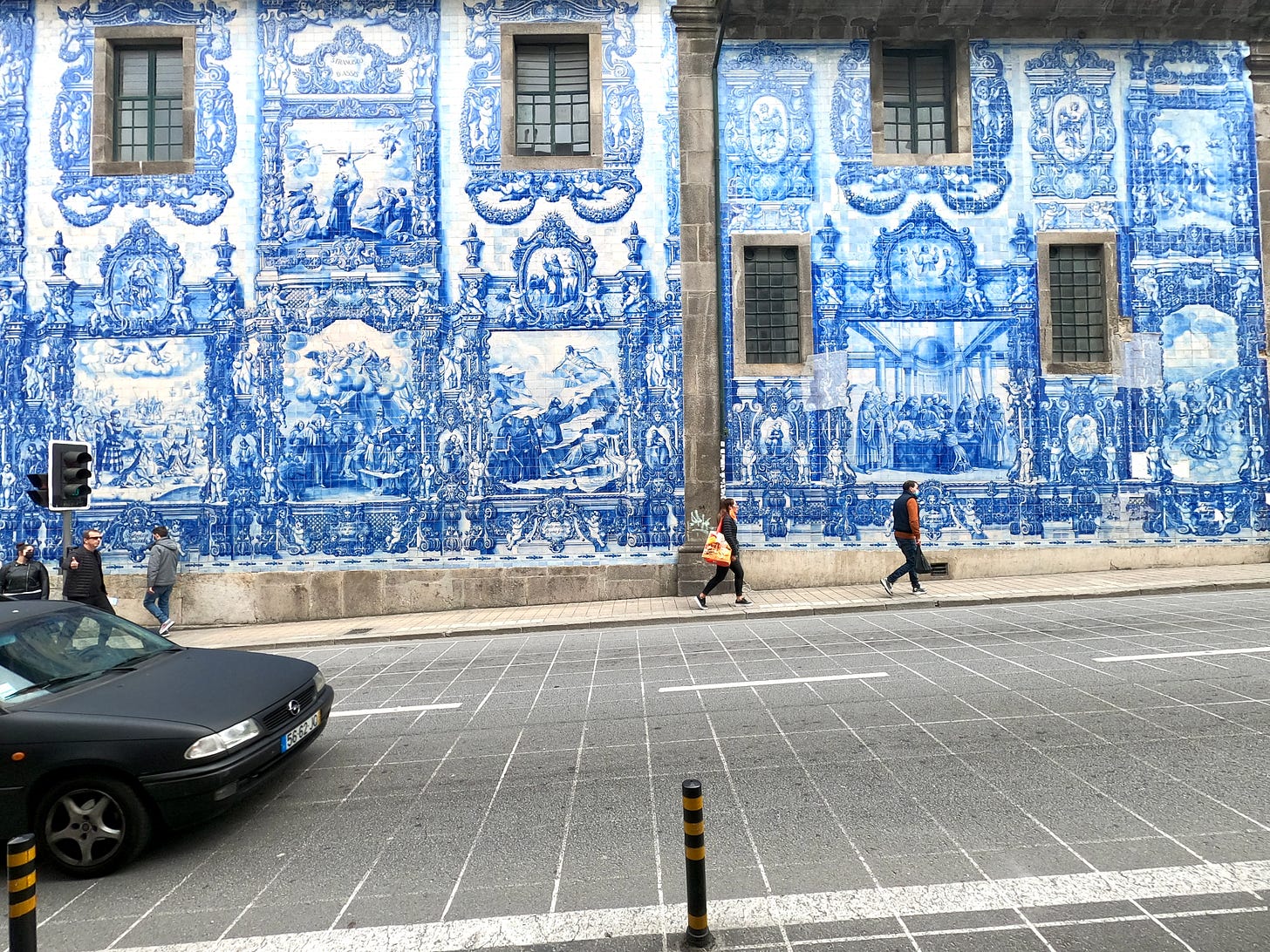I drafted this while heading to Porto in northern Portugal. I rode an 80-yr old urban tram, to a clean subway, to a modern express train that is now sweeping me up the length of the country, at 187 km/hr, on banked turns. Ready for a thread on social investment?
Portugal has planes, trains, and automobiles, buses, scooters, ferries, bikes shares & more. Not everything is new here—aside from the carefully preserved antique houses, 1,000 year-old castles, and settlements dating to the Phoenicians, Portugal has its share of rust-belt factories and obsolete commercial ruins. But you cannot help but notice the updates everywhere: new bridges, renovated factories, rural support facilities, clean cities. America was once an inventor and world leader in all of these fields. We chose long ago to abandon the social commitment that underlies infrastructure.
But Portugal has invested in much more than concrete. Over the last 20 years, primary schools here have risen to tie Finland for the best in Europe. The university where I teach is summer-job cheap. All students in Portugal get a voucher for any assigned textbook—it’s free. Students graduate with no debt, so they can get straight to productive lives.
There is little homelessness here—aside from investing in housing, Portugal switched in 2001 to treating drug addiction as a disease. Drugs are NOT legalized here, and are hard to find. Dealing or buying drugs is still illegal, and prosecuted. But addicts are no longer arrested for possessing small amounts, and are kept out of the police/courts/jail cycle that is so destructive to them while doing nothing to resolve the larger problem. Addiction is treated instead as an effectively incurable illness. The goal of Portuguese policy is to reduce suffering for both the addict and the society. Heroin addiction is now half what it was in 2001, and the death rate from overdoses is the second lowest in Europe.
There are many components in this famous Portuguese success, but the most crucial may be the “dissuasion committee.” Instead of going to jail, addicts are required to meet with a panel of community representatives who guide them toward responsible behavior. The panel typically includes a nurse or doctor, a judge or lawyer, and a psychologist or therapist. For problem addicts, it may rope in family and even neighbors. Housing support and health care play smaller roles than you might think. (It is very difficult to get public housing, for example, and health care focusses more on resident facilities for the mentally ill). Instead, the main thrust is on social integration and harm reduction. Addicts are encouraged to get jobs and return to their families. Methadone and clean needles are available to prevent HIV and hepatitis from making the situation worse. Instead of cycling them through jails and hospitals, addicts remain functional, or at least needing less support.
This is further evidence that a real national health care system keeps people working, and frees them to make good decisions. Even with supplemental private insurance, a family I met here pays just €3,000 a year for complete coverage. Prescriptions are almost free. The copay for a doctor’s visit is €17, and is usually the ONLY bill you receive. So even drug addicts can afford to meet with a doctor or nurse to prevent their health problems from getting worse. The burden for everyone goes down.
But taxes! What about the gummint stealing all my money? People don’t really “pay taxes” in Europe. There is no tax season. You get a highly progressive tax bill calculated for you, but more revenue in Portugal come from a 23% VAT, essentially a comprehensive sales tax that is hidden in every transaction. The overall tax burden averages 34%. Every time you pay for an expensive beer, or chic sweater, or $8/gallon gasoline, you are funding this investment.
It’s social investment. Half the entire EU budget goes to investing in agriculture—farms/food/production (and over production). The other half goes to investing in employment/jobs/work/education support. That’s it. The EU doesn’t have an army. It invests in putting people to work, in educating them, in making infrastructure and social strength. That’s all it does.
And those investments in society—in everything from trains to schools to helping drug addicts stay healthy and off the streets—pay massive dividends. They build social cohesion and trust, and reduce the appeal of political extremists. Nobody falls for us-versus-them authoritarianism when there is just us, all together.
This train just his 200 km/hr, so I’m signing off. I’m getting motion sickness.





America, pay attention. But we rarely ate willing to learn from any other country.
oUR JUSTICE SYSTEM STRESSES PUNISHMENT; THEIRS IS ABOUT REHABILITATION.